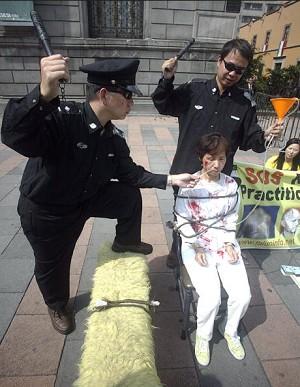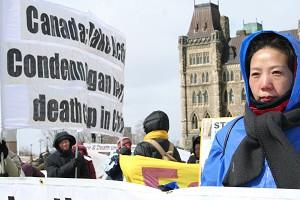On July 20th, 1999, Chinese state media announced a ban on Falun Gong, and a new Communist political movement began. Chinese media began blanket coverage of the practice, denouncing it forcefully and repeatedly.
The movement spread to the general public, as Falun Gong books are collected and burned. Falun Gong practitioners are sentenced up to 18 years in jail in widely publicized show trials. Many Falun Gong practitioners were expelled from their jobs, detained, and sentenced to jail or forced labor.
As the mass political fervor against Falun Gong continues in public, daily reports of gruesome torture leaked out of China’s prisons, detailing torture, beatings, injections with nerve-damaging drugs, and violent force-feedings.
Most recently, it was revealed that Chinese authorities have constructed at least one elaborate, underground facility where thousands of Falun Gong practitioners have been killed for their organs.
It all begs the question: What, exactly, is Falun Gong, and do Chinese authorities see it as such a threat that billions of dollars should be used to eradicate it?



